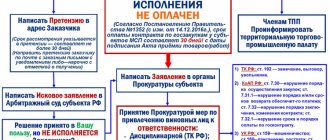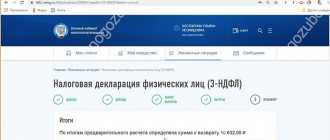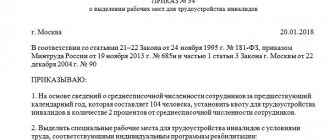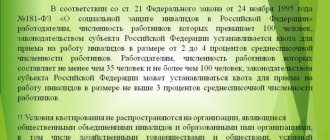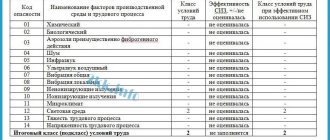Minimum share of purchases of Russian goods
Decree of the Government of the Russian Federation dated December 3, 2020 No. 2013 determined the minimum share of purchases of goods of Russian origin from 2021 to 2023. The document specifies which product falls into this category.
It must be present in one of the registries:
- In the register of industrial goods provided for by Decree of the Government of the Russian Federation of April 30, 2020 No. 616;
- In the register of radio-electronic products provided for by Decree of the Government of the Russian Federation of July 10, 2019 No. 878.
The standard is set depending on the name of the product. For example, for paper and cardboard the minimum share is 90%, and for cash terminals, ATMs and similar equipment the quota varies from 18 to 20% depending on the year.
In total, the document covers 251 items. This is a wide range of light industry goods, medical equipment, furniture, computer equipment and other products.
Later, Decree of the Government of the Russian Federation dated March 3, 2021 No. 304 was published, which added that a product is also considered Russian if it is included in the register of Eurasian industrial products. Customers have the opportunity to purchase goods from this register and take them into account on an equal basis with Russian ones within the framework of the rule on procurement quotas.
How is the minimum share established?
The quota is determined as a percentage of the volume of purchases of goods of the corresponding type carried out by the customer in the reporting year. At the same time, those goods that are supplied during the performance of purchased work or provision of services are also taken into account.
The innovation relates to purchases that take place from January 1, 2021.
Follow our updates:
Expanding the list of customers covered by 223-FZ
Now the effect of 223-FZ covers purchases by regional operators for the management of municipal solid waste (MSW). Such customers must develop procurement regulations by April 2, 2021. If the document does not meet the new requirements, it will be considered unposted.
Those purchases that were published before the date of publication of the updated regulation are completed according to the rules established on the date of publication of such notice.
Innovations were introduced by Federal Law No. 443-FZ dated December 22, 2020.
Federal Law of July 18, 2011 No. 223-FZ
RUSSIAN FEDERATION
THE FEDERAL LAW
On procurement of goods, works, services by certain types of legal entities
Adopted by the State Duma on July 8, 2011
Approved by the Federation Council on July 13, 2011
(As amended by federal laws dated December 6, 2011 No. 401-FZ, dated December 30, 2012 No. 324-FZ, dated June 7, 2013 No. 115-FZ, dated July 2, 2013 No. 160-FZ, dated December 21, 2013 No. 379-FZ, dated December 28, 2013 No. 396-FZ, dated March 12, 2014 No. 26-FZ, dated December 29, 2014 No. 458-FZ, dated June 29, 2015 No. 156-FZ, dated June 29, 2015 No. 159-FZ, dated June 29, 2015 No. 210-FZ, dated July 13, 2015 No. 249-FZ, dated April 5, 2016 No. 104-FZ, dated July 3, 2016 No. 236-FZ, dated July 3, 2016 No. 321-FZ, dated December 28, 2016 No. 474-FZ, dated 06/07/2017 No. 108-FZ, dated 12/29/2017 No. 470-FZ, dated 12/31/2017 No. 481-FZ, dated 12/31/2017 No. 496-FZ, dated 12/31/2017 No. 505-FZ, dated 06/29/2018 No. 174 -FZ, dated 03.08.2018 No. 341-FZ, dated 03.08.2018 No. 342-FZ, dated 30.10.2018 No. 391-FZ, dated 28.11.2018 No. 452-FZ, dated 01.05.2019 No. 70-FZ, dated 02.08 .2019 No. 263-FZ, dated December 27, 2019 No. 474-FZ, dated April 24, 2020 No. 124-FZ, dated July 31, 2020 No. 250-FZ, dated December 22, 2020 No. 435-FZ, dated December 22, 2020 No. 443- Federal Law, dated December 22, 2020 No. 447-FZ, dated December 22, 2020 No. 452-FZ, dated February 24, 2021 No. 20-FZ, dated April 5, 2021 No. 86-FZ)
Article 1. Goals of regulation of this Federal Law and relations regulated by this Federal Law
1. The goals of regulation of this Federal Law are to ensure the unity of the economic space, create conditions for the timely and complete satisfaction of the needs of legal entities specified in Part 2 of this article (hereinafter referred to as customers), for goods, works, services, including for the purposes of commercial use , with the necessary indicators of price, quality and reliability, efficient use of funds, expanding opportunities for the participation of legal entities and individuals in the procurement of goods, works, services (hereinafter also referred to as procurement) for the needs of customers and stimulating such participation, developing fair competition, ensuring transparency and transparency of procurement, prevention of corruption and other abuses. (As amended by Federal Law No. 505-FZ dated December 31, 2017)
2. This Federal Law establishes general principles for the procurement of goods, works, services and basic requirements for the procurement of goods, works, services:
1) state corporations, state-owned companies, public law companies, natural monopolies, organizations carrying out regulated activities in the field of electricity supply, gas supply, heat supply, water supply, sewerage, wastewater treatment, municipal solid waste management, autonomous institutions, as well as business companies in the authorized capital of which the share of participation of the Russian Federation, a constituent entity of the Russian Federation, or a municipal entity in the aggregate exceeds fifty percent; (As amended by federal laws dated December 29, 2014 No. 458-FZ, dated July 3, 2016 No. 236-FZ, dated July 3, 2016 No. 321-FZ, dated December 22, 2020 No. 443-FZ)
2) subsidiary business companies, in the authorized capital of which more than fifty percent of the shares in the aggregate belong to the legal entities specified in paragraph 1 of this part;
3) subsidiary business companies, in the authorized capital of which more than fifty percent of the shares in the aggregate belong to the subsidiary business companies specified in paragraph 2 of this part;
4) a budgetary institution in the presence of a legal act approved in accordance with Part 3 of Article 2 of this Federal Law and posted before the beginning of the year in the unified information system in the field of procurement of goods, works, services to meet state and municipal needs in accordance with Part 1 of Article 4 of this Federal Law, when making purchases:
a) at the expense of funds received as a gift, including donations (charitable donations), under a will, grants transferred free of charge and irrevocably by citizens and legal entities, including foreign citizens and foreign legal entities, as well as international organizations, subsidies (grants) provided on a competitive basis from the relevant budgets of the budget system of the Russian Federation, unless otherwise established by the conditions determined by the grantors; (As amended by Federal Law No. 70-FZ dated May 1, 2019)
b) as a contractor under a contract in the event that other persons are involved on the basis of a contract during the execution of this contract to supply goods, perform work or provide services necessary to fulfill the obligations of this institution under the contract;
c) at the expense of funds received when carrying out other income-generating activities from individuals, legal entities, including within the framework of the main types of activities provided for by its constituent document (with the exception of funds received for the provision and payment of medical care under compulsory health insurance) ;
(Clause introduced - Federal Law dated December 28, 2013 No. 396-FZ)
5) state unitary enterprises, municipal unitary enterprises in the presence of a legal act approved in accordance with Part 3 of Article 2 of this Federal Law and posted before the beginning of the year in the unified information system in the field of procurement of goods, works, services to meet state and municipal needs in accordance with Part 1 of Article 4 of this Federal Law, when making procurements: (As amended by Federal Law dated 06/07/2017 No. 108-FZ)
a) at the expense of funds received as a gift, including donations, under a will, grants transferred free of charge and irrevocably by citizens and legal entities, including foreign citizens and foreign legal entities, as well as international organizations, subsidies (grants), provided on a competitive basis from the relevant budgets of the budget system of the Russian Federation, unless otherwise established by the conditions determined by the grant givers; (As amended by Federal Law No. 70-FZ dated May 1, 2019)
b) as a contractor under a contract in the event that other persons are involved on the basis of an agreement during the execution of this contract to supply goods, perform work or provide services necessary to fulfill the obligations of this enterprise under the contract, except for cases of execution by the enterprise of a contract concluded in accordance with clause 2 of part 1 of Article 93 of the Federal Law of April 5, 2013 No. 44-FZ “On the contract system in the field of procurement of goods, works, services to meet state and municipal needs”;
c) without attracting funds from the corresponding budgets of the budget system of the Russian Federation; (Subclause introduced - Federal Law dated 06/07/2017 No. 108-FZ; as amended by Federal Law dated 06/29/2018 No. 174-FZ)
(Clause introduced - Federal Law dated July 3, 2016 No. 321-FZ)
6) federal state unitary enterprises that are essential for ensuring the rights and legitimate interests of citizens of the Russian Federation, the defense capability and security of the state, the list of which is approved by the Government of the Russian Federation in agreement with the Administration of the President of the Russian Federation, except for cases of procurement by such enterprises through subsidies, provided from the federal budget for the implementation on the territory of the Russian Federation of capital investments in capital construction projects of the state property of the Russian Federation and (or) for the acquisition of real estate objects in the territory of the Russian Federation in the state property of the Russian Federation. (Clause introduced - Federal Law dated December 28, 2016 No. 474-FZ; as amended by Federal Law dated June 29, 2018 No. 174-FZ)
21. The effect of this Federal Law (except for the cases specified in part 5 of this article) does not apply to legal entities in the authorized capital of which the share of participation of the Russian Federation, a constituent entity of the Russian Federation, a municipal entity in the aggregate does not exceed fifty percent, or to their subsidiaries companies and subsidiaries of the latter, namely: (As amended by Federal Law dated July 13, 2015 No. 249-FZ)
1) subjects of natural monopolies, organizations carrying out regulated activities in the field of electricity supply, gas supply, heat supply, water supply, sewerage, wastewater treatment, management of solid municipal waste, if the total revenue of such subjects, organizations from activities related to the sphere of activity of natural monopolies, and from these types of activities constitutes no more than ten percent of the total amount of revenue, respectively, from all types of activities carried out by them for the previous calendar year, information on the volume of which is posted in the unified information system in the field of procurement of goods, works, services to provide state and municipal needs (hereinafter referred to as the unified information system); (As amended by federal laws dated December 28, 2013 No. 396-FZ, dated December 29, 2014 No. 458-FZ, dated December 22, 2020 No. 443-FZ)
2) subsidiary business companies of subjects of natural monopolies, organizations carrying out regulated activities in the field of electricity supply, gas supply, heat supply, water supply, sewerage, wastewater treatment, management of solid municipal waste, if the proceeds from the purchase of goods, works, services by the main business companies and their other subsidiaries business companies is no more than five percent of the amount of revenue for the previous four quarters from all types of activities carried out by them, information on the volume of which is posted in the unified information system; (As amended by federal laws dated December 28, 2013 No. 396-FZ, dated December 29, 2014 No. 458-FZ, dated December 22, 2020 No. 443-FZ)
3) subsidiary business companies specified in paragraph 2 of this part of the subsidiary business companies, if the proceeds from the purchase of goods, works, services by the main business companies (including other subsidiary business companies of the main business companies) of the main business companies of the specified subsidiary business companies amount to no more than five percent of the amount of revenue for the previous four quarters from all types of activities they carry out, information on the volume of which is posted in the unified information system. (As amended by Federal Law No. 396-FZ dated December 28, 2013)
(Part introduced - Federal Law No. 324-FZ dated December 30, 2012)
3. The procedure for determining the total share of participation of the Russian Federation, a constituent entity of the Russian Federation, a municipal entity specified in paragraphs 1 and 2 of part 2 of this article of legal entities in the authorized capital of business entities, the procedure for notifying customers about changes in the total share of such participation are approved by the federal executive body, authorized by the Government of the Russian Federation, in agreement with the federal executive body exercising the functions of developing state policy and legal regulation in the field of procurement of goods, works, services to meet state and municipal needs. (As amended by Federal Law No. 505-FZ dated December 31, 2017)
4. This Federal Law does not regulate relations related to:
1) purchase and sale of securities, acquisition of shares in the authorized (share) capital of business partnerships, companies and shares in mutual funds of production cooperatives, currency values, precious metals, as well as the conclusion of contracts that are derivative financial instruments (except for contracts that are concluded outside the scope of exchange trading and the fulfillment of obligations for which involves the supply of goods); (As amended by Federal Laws dated July 2, 2013 No. 160-FZ; dated October 30, 2018 No. 391-FZ)
2) the customer’s acquisition of exchange-traded goods on a commodity exchange in accordance with the legislation on commodity exchanges and exchange trading;
3) the customer’s procurement of goods, works, services in accordance with the Federal Law of April 5, 2013 No. 44-FZ “On the contract system in the field of procurement of goods, works, services to meet state and municipal needs”; (As amended by Federal Law No. 396-FZ dated December 28, 2013)
4) procurement in the field of military-technical cooperation;
5) procurement of goods, works, services in accordance with an international treaty of the Russian Federation, if such agreement provides for a different procedure for determining suppliers (contractors, performers) of such goods, works, services;
6) (Clause has lost force - Federal Law dated December 6, 2011 No. 401-FZ)
7) the customer’s selection of an audit organization to conduct a mandatory audit of the customer’s accounting (financial) statements in accordance with Article 5 of the Federal Law of December 30, 2008 No. 307-FZ “On Auditing Activities”;
 conclusion and execution of contracts in accordance with the legislation of the Russian Federation on the electric power industry, which are mandatory for participants in the market for the circulation of electric energy and (or) capacity; (Clause introduced - Federal Law dated June 7, 2013 No. 115-FZ; as amended by Federal Law dated December 31, 2017 No. 505-FZ)
conclusion and execution of contracts in accordance with the legislation of the Russian Federation on the electric power industry, which are mandatory for participants in the market for the circulation of electric energy and (or) capacity; (Clause introduced - Federal Law dated June 7, 2013 No. 115-FZ; as amended by Federal Law dated December 31, 2017 No. 505-FZ)
9) implementation by a credit organization and the state development corporation “VEB.RF” of leasing operations and interbank transactions, including with foreign banks; (Clause introduced - Federal Law dated July 2, 2013 No. 160-FZ; as amended by Federal Laws dated December 29, 2017 No. 470-FZ; dated November 28, 2018 No. 452-FZ)
10) determination, election and activities of a representative of bondholders in accordance with the legislation of the Russian Federation on securities; (Clause introduced - Federal Law dated December 21, 2013 No. 379-FZ)
11) opening by the lead contractor of the supply of products under the state defense order, the contractor participating in the supply of products under the state defense order, in an authorized bank of a separate account and the conclusion by them with the authorized bank of agreements on banking support of the supported transaction in accordance with the Federal Law of December 29, 2012 No. 275-FZ “On State Defense Order”; (Clause introduced - Federal Law dated June 29, 2015 No. 159-FZ)
12) execution by the customer of an agreement concluded with a foreign legal entity, the subject of which is the supply of goods, performance of work, provision of services outside the Russian Federation; (Clause introduced - Federal Law dated December 31, 2017 No. 505-FZ)
13) the customer’s procurement of goods, works, services from legal entities that are recognized as interdependent entities with him in accordance with the Tax Code of the Russian Federation and the list of which is determined by the legal acts provided for in Part 1 of Article 2 of this Federal Law and regulating the procurement rules. Such legal acts indicate the rationale for including each legal entity in the specified list in accordance with the provisions of the Tax Code of the Russian Federation; (Clause introduced - Federal Law dated December 31, 2017 No. 505-FZ)
14) purchase of goods, works, services by a legal entity registered in the territory of a foreign state for the purpose of carrying out its activities in the territory of a foreign state; (Clause introduced - Federal Law dated December 31, 2017 No. 505-FZ)
15) by the customer selecting a subject of valuation activities to carry out, in accordance with the legislation of the Russian Federation on valuation activities, the assessment of objects of assessment in order to determine the amount of payment for a public easement established in accordance with land legislation; (Clause introduced - Federal Law dated August 3, 2018 No. 341-FZ)
16) joint investment activities carried out on the basis of an investment partnership agreement, providing for the return to the partner of the value of his contribution to the common property of the partners (in cash); (Clause introduced - Federal Law dated October 30, 2018 No. 391-FZ)
17) purchase by the customer of services related to the conclusion, execution, amendment or termination of a syndicated loan (loan) agreement or an agreement on the organization of a syndicated loan (loan); (Clause introduced - Federal Law No. 447-F dated December 22, 2020, comes into force on June 21, 2021)
18) carrying out engineering surveys, architectural and construction design, construction, reconstruction, major repairs, demolition of capital construction projects, which are provided by public law in accordance with the program of activities of the specified public law company for the current year and the planned period at the expense of the federal budget. (Clause introduced - Federal Law dated December 22, 2020 No. 435-FZ)
5. The effect of this Federal Law in terms of the specifics of procurement provided for in Article 31 of this Federal Law extends to legal entities implementing investment projects with state support in the amount established by the Government of the Russian Federation, the cost of which exceeds 500 million rubles, subject to the inclusion of such projects to the register of investment projects. For the purposes of this Federal Law, procurement carried out by these legal entities means the conclusion, at the expense of funds from such investment projects, of contracts for the supply of goods that meet the criteria approved by the Government of the Russian Federation on the basis of clause 2 of part 6 of Article 31 of this Federal Law, and (or) contracts for the performance of work, provision of services, lease agreements (including charter and financial lease agreements), the terms of which provide for the use of these goods. (Part introduced - Federal Law dated July 13, 2015 No. 249-FZ; as amended by Federal Law dated December 31, 2017 No. 496-FZ)
Article 2. Legal basis for the procurement of goods, works, services
1. When purchasing goods, works, services, customers are guided by the Constitution of the Russian Federation, the Civil Code of the Russian Federation, this Federal Law, other federal laws and other regulatory legal acts of the Russian Federation, as well as those adopted in accordance with them and approved taking into account the provisions of Part 3 of this articles of legal acts regulating procurement rules (hereinafter referred to as the procurement regulations).
2. The procurement regulations are a document that regulates the procurement activities of the customer and must contain procurement requirements, including the procedure for determining and justifying the initial (maximum) price of the contract, the price of the contract concluded with a single supplier (performer, contractor), including the procedure for determining price formula establishing the rules for calculating the amounts payable by the customer to the supplier (performer, contractor) during the execution of the contract (hereinafter referred to as the price formula), determining and justifying the price of a unit of goods, work, services, determining the maximum value of the contract price, the procedure for preparing and carrying out procurement in the ways specified in parts 31 and 32 of Article 3 of this Federal Law, the procedure and conditions for their application, the procedure for concluding and executing contracts, as well as other provisions related to ensuring procurement. (As amended by federal laws dated December 31, 2017 No. 505-FZ, dated April 5, 2021 No. 86-FZ)
21. The federal executive body exercising the functions and powers of the founder of a budgetary institution, an autonomous institution, the federal executive body or an organization exercising on behalf of the Russian Federation the powers of the owner of the property of a unitary enterprise, has the right to approve a standard procurement regulation, as well as to determine budgetary institutions, autonomous institutions, state unitary enterprises for which the use of such a standard procurement regulation is mandatory when they approve the procurement regulation or make changes to it. Executive body of the constituent entity of the Russian Federation, body
Changes in competitive e-procurement among SMEs
From April 1, 2021, innovations will occur in the procedure for conducting competitive electronic procurement among SMEs.
Firstly, the electronic competition will be held without qualifying participants. Previously, this was one of the mandatory stages of the procedure.
Secondly, the electronic request for proposals will be carried out according to the rules proposed for the electronic competition. Submission of a final offer (additional price offer) is not provided for by the new rules.
New procedure for requesting information from participants
It is important to pay attention to what information the customer now has the right to request from participants. Important changes on this issue were made by Decree of the Government of the Russian Federation of November 24, 2020 No. 1909 to Decree of the Government of the Russian Federation of December 11, 2014 No. 1352.
An exhaustive list of such information has been determined, so it is impossible to require other documents and information.
What does this list include:
- If the participant is an individual entrepreneur, then full name, passport details, address of residence; if a legal entity - name, address, constituent document; if a foreign person - the participant’s TIN or its equivalent.
- Data on securing the application (if the requirement is in the procurement documents): details of a special account or bank guarantee.
- Proposal for the subject of purchase.
- Offer on the contract price (electronic auction is an exception).
- Declaration of certain information (that is, confirmation of its relevance as of the date of application).
After April 1, 2021, customers are given 90 days to make appropriate changes to the procurement regulations.
The main differences between 44-FZ and 223-FZ
The key differences between 44-FZ and 223-FZ in 2021 are presented in the table:
| 44-FZ | 223-FZ |
| Organizers of the auction | |
|
|
| Performers | |
| Legal entities and individuals, individual entrepreneurs | Legal entities and individuals, individual entrepreneurs, collective participants |
| Bidding formats | |
|
|
| Trading platforms | |
The following trading platforms can be used:
The participant receives accreditation at all these sites immediately after registration in the EIS. Please note that registration is always free, unlike platforms for work under 223-FZ | There are over 170 trading platforms in total. Organizers have the right to choose ETP at their discretion. Platforms with paid and/or free access can be used, and various conditions of participation are also allowed |
| Deadlines for submitting applications for participation | |
| For all stages of the trading procedure, 44-FZ sets strict deadlines. All parties participating in the tender must comply with them. | Unlike 44-FZ, 223-FZ allows the customer to fix the deadlines in the Procurement Regulations. Therefore, it is important for all tender participants under 223-FZ to study the specific Regulations |
| Reports in the UIS | |
The following reports must be prepared:
|
|
| Contract security | |
| The state customer has the right to set security in the range of 0–30% if the contract is concluded for an amount of up to 50 million rubles. If medical equipment is purchased or the amount exceeds 50 million rubles, the security should be 5–30% of the NMCC. The tenderer can choose the method of securing the contract. This role is played by a bank guarantee or funds deposited into the organizer’s account | The customer himself sets this amount, in contrast to 44-FZ, which prescribes more stringent restrictions |
| Amendments to the provisions, termination of the contract | |
| The essential terms of the agreement cannot be changed. Such actions are allowed only in cases specified by law, if an agreement is reached between the parties to the contract (Part 1 of Article 95). Termination is carried out:
| The possibility of adjusting the terms of the agreement is recorded in the Regulations. Any changes to the essential terms of the contract must be agreed upon with the contractor. The quantity, volume, price of purchased goods/services, and deadlines may be adjusted. Termination is allowed only if there are significant violations by the participant and is carried out by court decision |
| Appeal against the actions of the auction organizer | |
Complaints are reviewed within five working days and submitted:
| Complaints about the customer’s actions are sent to the territorial office of the FAS. The deadlines for filing complaints are established by the Procurement Regulations. The claim is considered in accordance with the Regulations and the Civil Code of the Russian Federation. The following may be appealed:
|
It is believed that there is one main difference between 223-FZ and 44-FZ: it is easier to work under 44-FZ. This is due to the fact that in public procurement carried out in accordance with the norms of this law, all requirements, procedures and conditions are strictly fixed and are common to everyone. It is more difficult to use 223-FZ in practice, but it gives a wide range of opportunities to all parties to the contract.
When working with 223-FZ, in contrast to 44-FZ, it is not enough just to know the provisions of the law; you also need to refer to government regulations that regulate certain issues of its application and clarify the provisions of the legislative act. It is equally important to study the documents provided by the organizer before participating in the procurement. Practice shows that in some cases it is also necessary to turn to other laws, for example, “On the Protection of Competition”. Therefore, if we outline the difference between 44-FZ and 223-FZ in simple words, then for regulatory regulation of procurement when working with 223-FZ it is necessary to use other acts.
Responsibility for violation of payment terms
The maximum payment period for goods supplied under an agreement with the participation of only SMEs is no more than 15 working days from the date the customer signs the document on acceptance of the delivered goods.
From January 2, 2021, if payment deadlines are violated under an agreement concluded with a SME, or at a separate stage thereof, customers will be subject to administrative liability in the form of fines.
Amounts of fines
Federal Law No. 453-FZ of December 22, 2020 amended the Administrative Code and thus established monetary sanctions: for officials in the amount of 30,000 to 50,000 rubles, and for legal entities - from 50,000 to 100,000 rubles.
Changing the procedure for maintaining the register of contracts
From April 1, 2021, the register of contracts includes information about the country of origin of goods in accordance with the all-Russian classifier. That is, when preparing procurement documentation, the procurement participant must be required to provide information about the country of origin of the goods.
Since 2021, Decree of the Government of the Russian Federation dated November 7, 2020 No. 1799 has introduced an amendment stating that it is necessary to include more information in the register of contracts, namely about the price of a unit of goods, work and services.
There is also a change in the procedure for entering information about the execution of a contract into the register - it must be indicated regularly, within 10 days from the date of acceptance of the delivered goods, work performed, services rendered and payment for the contract.
For tenders for construction work, Decree of the Government of the Russian Federation dated November 7, 2020 No. 1799 introduced a rule on the need to transmit data on goods that the customer accepts for accounting.
Gain practical knowledge for working with government procurement in the course “Customer under No. 223-FZ”. Find out more and register → Tatyana Bogatyreva Author of the media portal of the Russian School of Management
We present to your attention the long-awaited continuation of the article on ways to determine a supplier in public procurement. In the first part, we looked at what types of purchases there are under No. 44-FZ. It's time to talk about No. 223-FZ.
Methods for determining a supplier according to No. 223-FZ
As you know, No. 223-FZ is a less “strict” law than No. 44-FZ. Instead of establishing clear regulations for procurement procedures, he leaves a lot to the customer. Customers are required to form an internal document called the “Procurement Regulations”, in which they can themselves establish a procurement procedure that does not contradict the law.
Thus, according to No. 223-FZ, the supplier is determined by competitive and non-competitive methods .
Non-competitive procurement is, as you might guess from the name, procurement from a single supplier. Cases when the customer can use non-competitive procurement methods are determined independently in its Regulations.
Each customer's competitive procurement methods They may have the same names as in No. 44-FZ: competition, auction, request for quotations, request for proposals , but others may also appear. Procurement can be open or closed , and can be conducted electronically or in paper form . The Law also devotes special attention to procurement, the participants of which can only be small and medium-sized businesses .
The customer in his Regulations must determine which competitive procurement methods he will use and describe in detail the procedure for their implementation. The Law provides for some uniform requirements for the procedure for carrying out competitive procurement, which should be taken into account when establishing specific methods in the Regulations.
Full information about all open procedures is posted in the Unified Information System (UIS), anyone can take part in them.
Closed procedures are carried out in the following cases:
1) procurement with state secrets;
2) purchases within the framework of the state defense order related to the supply, repair, maintenance and disposal of weapons, as well as military or space equipment;
3) in other cases established by the Government of the Russian Federation.
Only a certain circle of participants capable of executing such specific contracts have access to closed procedures. The customer himself sends invitations to participants to take part in a closed procedure with the attachment of procurement documentation. Closed procedures can be carried out both in paper and electronic form on specialized electronic platforms.
The law provides general definitions for four main procurement methods.
An auction is a way to determine a supplier, in which the participant who agrees to fulfill the contract at a price lower than others wins. A distinctive feature of this type of procurement is the presence of a direct bidding procedure. Procurement participants in real time consistently submit proposals to reduce the initial maximum contract price (IMCP) until a winner is determined.
A competition is a way to determine a supplier, in which the winner is the participant who offers the best terms for the execution of the contract based on a combination of several criteria. The contract price of the winner of such a procedure may not be the lowest among other participants if he scored more points according to other criteria.
A request for quotations is a method of identifying a supplier in which the lowest bidder for a contract is the winner, but unlike an auction, there is no bidding process. Applications are submitted with a single price offer. Participants' price offers are reviewed and a winner is determined.
Request for proposals. The definition of this type of procurement in No. 223-FZ is essentially no different from the definition of a competition. The difference is that the minimum period for submitting applications for participation in the competition is 15 days, and the request for proposals can be completed in 7 working days. Often, when establishing in the Regulations the procedure for conducting a request for proposals, customers include a clause stating that conducting a request for proposals does not oblige the customer to conclude an agreement based on the results of such a procedure.
Competitive procurement, the participants of which can only be small and medium-sized businesses (SMEs).
For such purchases, No. 223-FZ establishes more stringent rules and leaves less freedom for the customer to invent their own features.
Procurement for SMEs is carried out only in electronic form and only in four main ways ( auction, competition, request for quotations, request for proposals ). Such purchases can only be carried out on electronic platforms that operate in accordance with the requirements described in No. 44-FZ and additional requirements established by the Government of the Russian Federation.
For a competition only for SMEs, the Law regulates the specific stages that such a procedure may contain, and establishes the rules that must be followed when including such stages.
For an auction and request for proposals only for SMEs, the Law regulates the rules for conducting the qualification selection of participants. The auction also has restrictions regarding the “auction step”.
To request quotes only for SMEs , the Law establishes specific requirements for the composition of an application for participation in such a procedure.
Thank you for your attention. This year we are planning a lot of new interesting and useful material. Stay with us!

